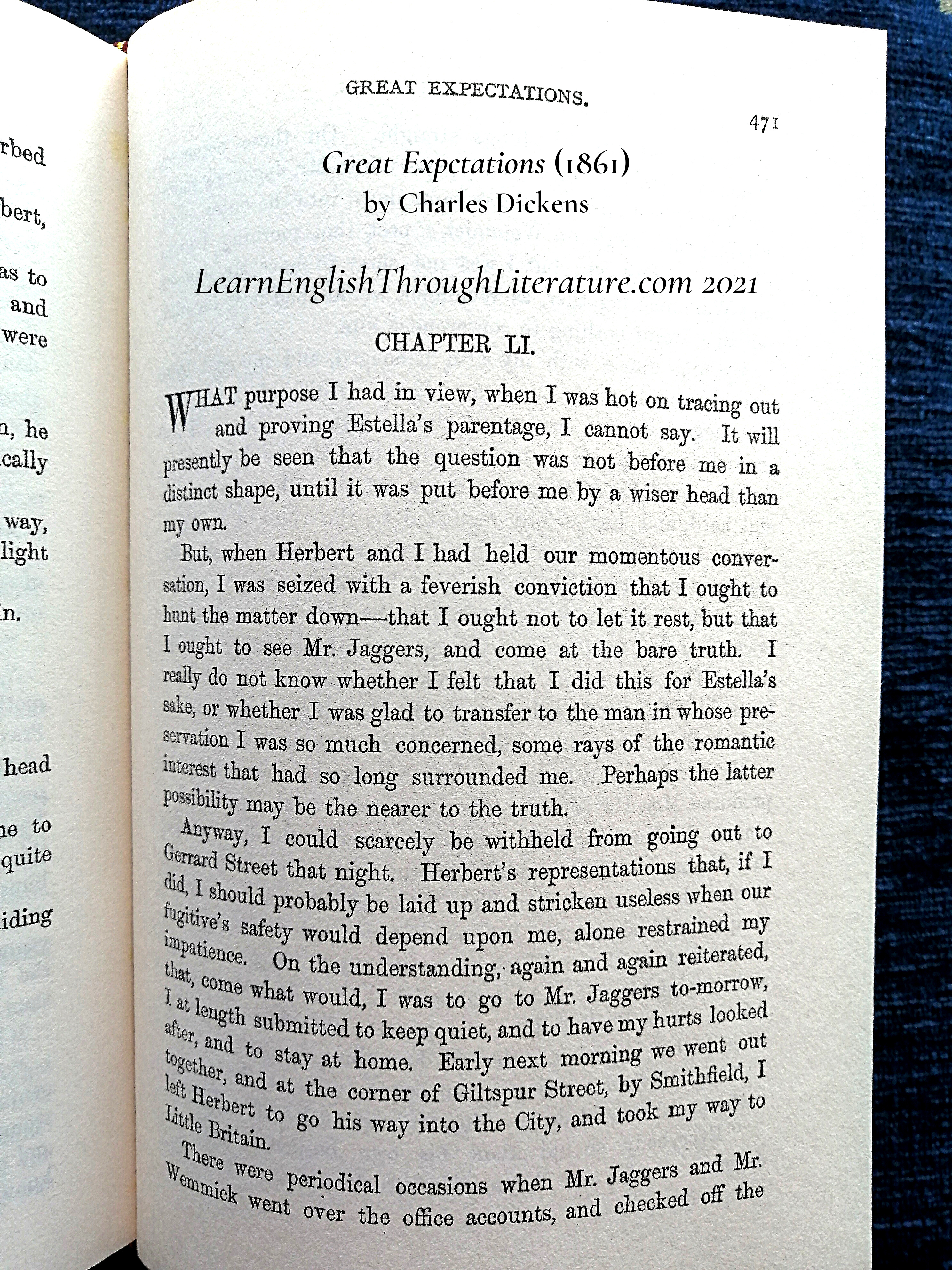📘 I really do not know whether I felt that I did this for Estella’s sake, or whether I was glad to transfer to the man in whose preservation I was so much concerned some rays of the romantic interest that had so long surrounded me. Perhaps the latter possibility may be the nearer to the truth.
– Charles Dickens, Great Expectations (1861)
In this second Part of our Lesson on the differences between ‘if’ and ‘whether’, we look specifically at whether (see Part 1 of the Lesson for when to use ‘if’ and when ‘if’/’whether’ can be used interchangeably).
…
📝 #3 WHETHER
We use ‘whether’ when there is a choice using ‘or’. (Some people will use ‘if’ even in this kind of sentence, but ‘whether’ is more correct and should always be so used in writing).
📘 “Whether you scold me or approve of me,” returned poor Biddy, “you may equally depend upon my trying to do all that lies in my power, here, at all times…”
– Charles Dickens, Great Expectations (emphases mine)
We also use ‘whether’ when a choice is implied (in other words, even when ‘or’ is not used). For example: The weather forecast isn’t favourable – I don’t know whether to go ahead with my plans for the weekend.
Here is a more eloquent example, taken from Dickens:
📘 I really do not know whether I felt that I did this for Estella’s sake, or whether I was glad to transfer to the man in whose preservation I was so much concerned some rays of the romantic interest that had so long surrounded me.
– Charles Dickens, Great Expectations (emphases mine)
…
📝 TIPS
Some 4 tips to help you know when you should surely use ‘whether’:
You should always use it:
- ✏️ after a preposition:
e.g., ‘I was wondering about whether to apply for the second job.’
‘Well, it is a question of whether you are willing to spend the time and energy on it.’
- ✏️ before an infinitive:
📘 Passing on into the front courtyard, I hesitated whether to call the woman to let me out at the locked gate of which she had the key, or first to go upstairs and assure myself that Miss Havisham was as safe and well as I had left her.
– Charles Dickens, Great Expectations (emphases mine)
- ✏️ It is often used when the verb ‘decide’ appears in a sentence: e.g. ‘I couldn’t decide whether to wear the blue or green dress.’
Here is a line from Dickens:
📘 With her character thus happily formed, in the first bloom of her youth she had encountered Mr. Pocket: who was also in the first bloom of youth, and not quite decided whether to mount to the Woolsack, or to roof himself in with a mitre.
– Charles Dickens, Great Expectations (emphases mine)
✍️ Note how this example also includes an ‘or’ and two infinitives (‘to mount … to roof’) – in other words, you will often find sentences that include several of the aspects I am pinpointing out here.
- ✏️ It is always used in the fixed expressions ‘whether or not [verb]’ or ‘whether you like it or not’ (this last one is sometimes used when speaking to children: e.g., ‘you have to do your homework whether you like it or not’).
📘 ‘Having settled that I must go to the Blue Boar, my mind was much disturbed by indecision whether or not to take the Avenger.’
– Charles Dickens, Great Expectations (emphases mine)
…
As always, I hope this Lesson has been useful for you and if you ever have any questions (about this topic or any other), feel free to ask me and I can try and prepare a lesson on it for you soon. ✏️




